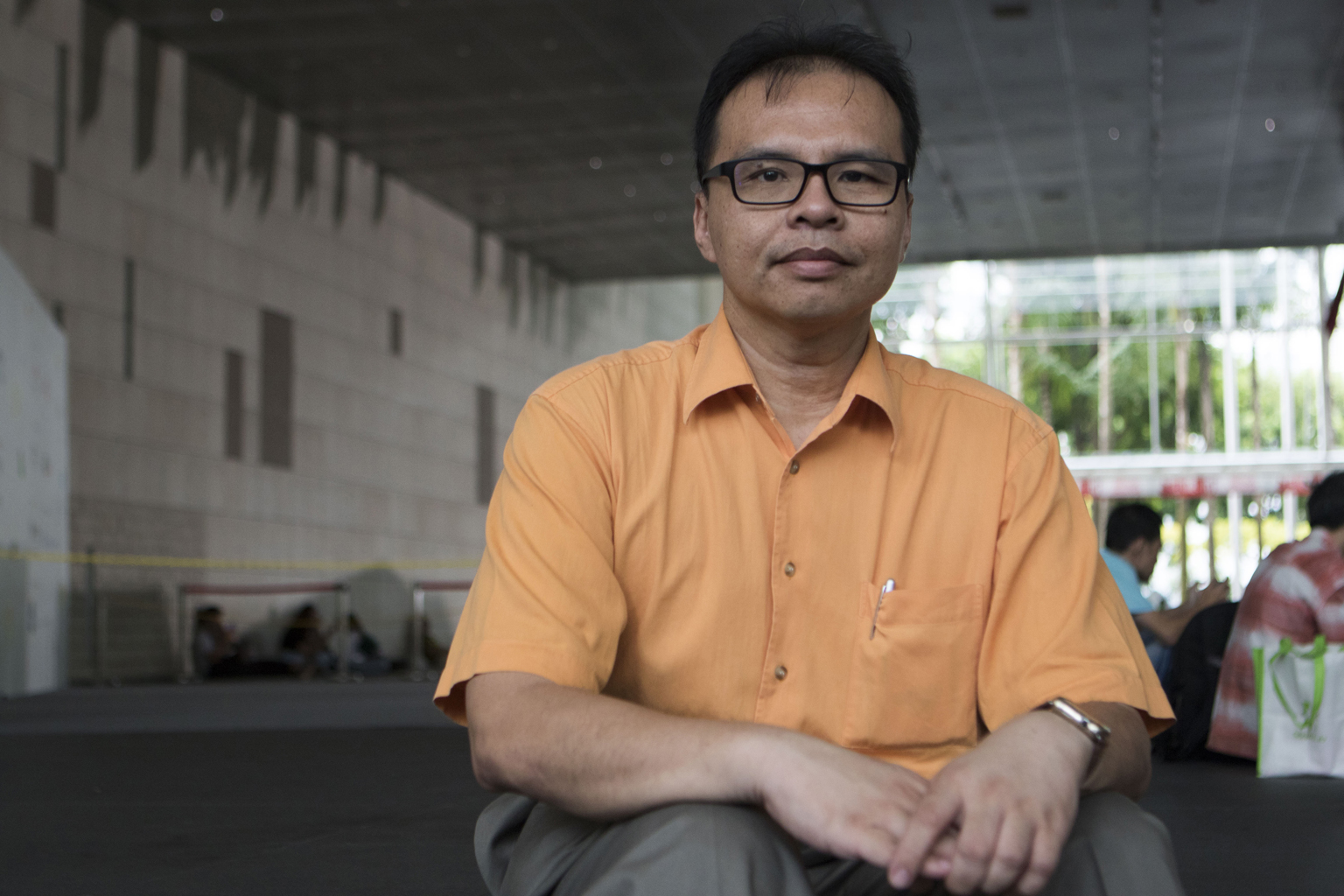Job-hunter tries to stay positive
Sign up now: Get ST's newsletters delivered to your inbox

Freelance income helps Mr Lau pay the bills while he continues to look for a job. He plans to explore career programmes that could help him widen his options.
ST PHOTO: NIVASH JOYVIN
Follow topic:
The first thing that job seeker Leonard Lau usually gets asked by headhunters is his age.
The second is his last-drawn salary.
Says the IT project manager, 46: "After that, they usually don't call back."
Mr Lau, who spent 17 years at an American multinational company and earned about $10,000 a month, was retrenched in March as part of a restructuring exercise.
"I was confident at first, because I used to get calls from headhunters," he says.
"But when I was out of work, the market went silent."
He is among a growing pool of white-collar job seekers who are finding it increasingly difficult to get hired again.
Figures from the Ministry of Manpower (MOM) show that the re-entry rate in the first half of the year plunged to a seven-year low.
Professionals, managers, executives and technicians (PMETs) bore the brunt, with their re-entry rates falling from 43 per cent in March to 40 per cent in June.
PMETs and those aged 40 or older made up the majority of those laid off in the past quarter.
Even so, Mr Lau is undeterred. The important thing for out-of-work PMETs like himself to remember in the face of setbacks, he says, is that none of it is personal. "These are all business decisions. It's not you. You need to keep fighting."
The going can be tough. Mr Patrick Tay, assistant secretary-general of the National Trades Union Congress (NTUC), says many employers might avoid hiring mature PMETs, fearing that they will be over-qualified or expect higher salaries, or that they cannot swallow having to report to others.
Mr Lau has applied to 50 organisations through headhunters since he lost his job. He has landed eight interviews, but none was successful.
Local firms thought he had spent too much time in multinational corporations. Japanese companies thought he was too immersed in American culture.
Some interviewers wanted to know if he could work under supervisors younger than him. Others questioned his energy level.
"It's not that there aren't jobs out there," he says. "I could see them, lots of them. It's just that something was always wrong.
"And when it keeps happening, you start to ask yourself - is it me? Am I not competent?
"That feeling becomes a burden. It becomes devastating."
It is a difficult period for his family. His wife, 45, had left her position as an IT manager in January, while her father, a construction supervisor in his 60s, had also lost his job.
She had been looking for another job in IT but, in the end, she took a 40 per cent cut in pay and joined the education industry in June.
Mr Lau is worried about his two sons, aged 14 and 16, and whether their tuition and extra-curricular activities will be affected if the family's savings dry up. He also supports his elderly mother, aged 81.
On the plus side, when he is not tied up with job searching, he earns extra income through freelancing, which includes conducting mathematics enrichment classes for primary school pupils.
He has also gone for training courses in areas such as project management, although they have not given him a discernible edge over the competition.
"When I was taking those courses, there were thousands of people doing the same thing," he says.
For his next step, he intends to explore career programmes through NTUC's U PME Centre - a one-stop facility at Raffles Place that helps PMEs get career and legal advice. He also hopes to join a professional conversion programme; such schemes help mid-career professionals switch to other industries.

